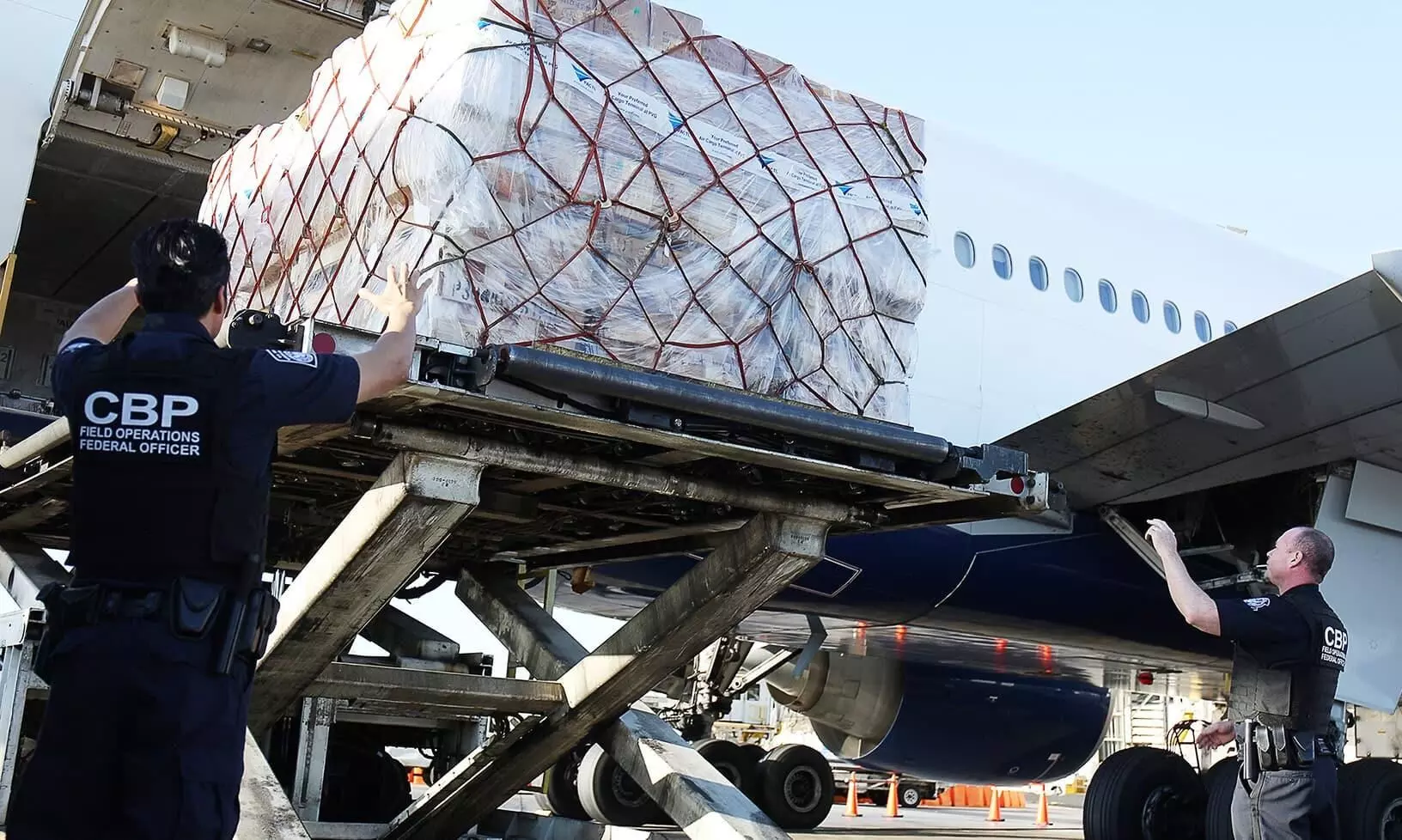
Trump pauses de minimis exemption ban on Chinese goods
Move gives Department of Commerce time to ensure systems are in place to fully process and collect tariff revenue.

U.S. Customs and Border Protection (CBP) officers offloading de minimis shipments from a plane at Los Angeles International Airport. Photo Credit: Ya-Huei Laura Lee/CBP.
U.S. President Donald Trump signed an executive order pausing the suspension of the de minimis exemption for imports from China.
The move gives the Department of Commerce more time to ensure "adequate systems are in place to fully and expediently process and collect tariff revenue applicable pursuant to subsection (a) of 19 U.S.C. 1321 for covered articles otherwise eligible for de minimis treatment."
The cancellation of de minimis could have meant over one billion e-commerce packages below $800 coming from China needed to move to provide additional information and duties.
While USPS had temporarily halted accepting packages from China, retailers like Shein and Temu had ensured that products are available in U.S. warehouses to ensure there is no lack of supply due to the regulatory changes.
U.S. Customs and Border Protection (CBP), which has the job of screening e-commerce packages and collecting duties on them, held a meeting on Thursday with logistics professionals to discuss the status of more than a million packages piling up at JFK Airport, Reuters reported.
Aevean, a strategy consulting firm for the aviation and logistics industry, says China e-commerce reached a "staggering 1.2 million tonnes or 55 percent of all China-U.S. air trade in 2024."
CBP Officer Steven Nethersole (left) shows Andrew Renna, Assistant Port Director, Cargo Operations, JFK International Airport suspicious merchandise in a de minimis package using a nonintrusive detection tool at the facility. Photo by Michael Nicholas/CBP
Niall van de Wouw, Chief Airfreight Officer, Xeneta says e-commerce products may be slightly more expensive if de minimis is removed, but they will still be cheaper than buying through retailers in the U.S. – but delays in receiving the goods due to operational disruptions could have a bigger impact than price because it takes away the attractiveness for consumers.
"China’s e-commerce giants knew this day would come and will not allow a business model on this scale to collapse. Even if de minimis is being blocked, the e-commerce retailers will still keep selling and shipping the goods. There may not be a significant impact on air freight rates in the short-term in this scenario, even if it causes chaos at the receiving airport in the U.S."
In the longer term, demand for e-commerce - and therefore freight rates - will only be impacted if the consumer feels the cheap price is not worth it if they face a longer wait to receive their goods, the latest Xeneta update added. "In this scenario, we’d expect to see a major downward impact on freight rates at a global level but to predict this now would be to cry wolf. Let’s wait and see. Maybe nothing changes," says Van de Wouw.
Derek Lossing, Founder, Cirrus Advisors, writes on LinkedIn: "Well, that was a fun Tuesday through Friday, if you work in global e-commerce. We should take a poll. How many people had their Chinese New Years Vacations destroyed by a four day policy, only to see it almost immediately reversed? Welcome to the next four years in America."

